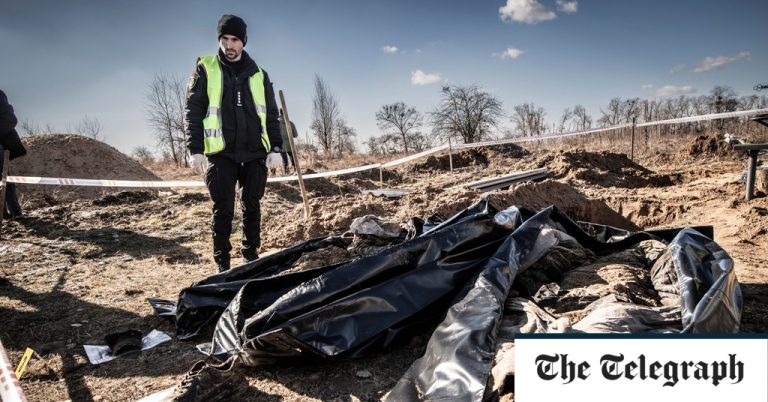However with greater than 5 million Ukrainians displaced, establishing contact with households for gathering very important DNA is troublesome, as is creating one unified registry of the lacking and coordinating between districts and forces.
“How one can create this record and centralise the lacking individuals, the administration of this data, is a problem,” mentioned Dr Salado Puerto.
The longer the deceased are left, the tougher this work additionally turns into; skeletonised our bodies won’t have fingerprints and delicate tissue is misplaced, whereas these buried in mass graves could also be commingled.
“In some conditions, our bodies have been rotting for a number of days or perhaps weeks, making identification tougher,” mentioned Achille Després, a spokesperson for the ICRC in Ukraine. “They’ve died a violent loss of life – these stays must be fastidiously cared for.”
In a bid to hurry up identification, in addition to coaching Ukrainian specialists, the programme has additionally recruited forensic specialists from the world over, together with Colombia and South Africa.
“We now have lots of geographical scope to cowl,” mentioned Mr Després. “The place it will get tough is that always the ‘enemies’ or ‘different facet’ have our bodies. We assist authorities on all sides comply with their obligations, and produce closure to a household who might imagine their son or husband remains to be alive.”
Defend your self and your loved ones by studying extra about Global Health Security
